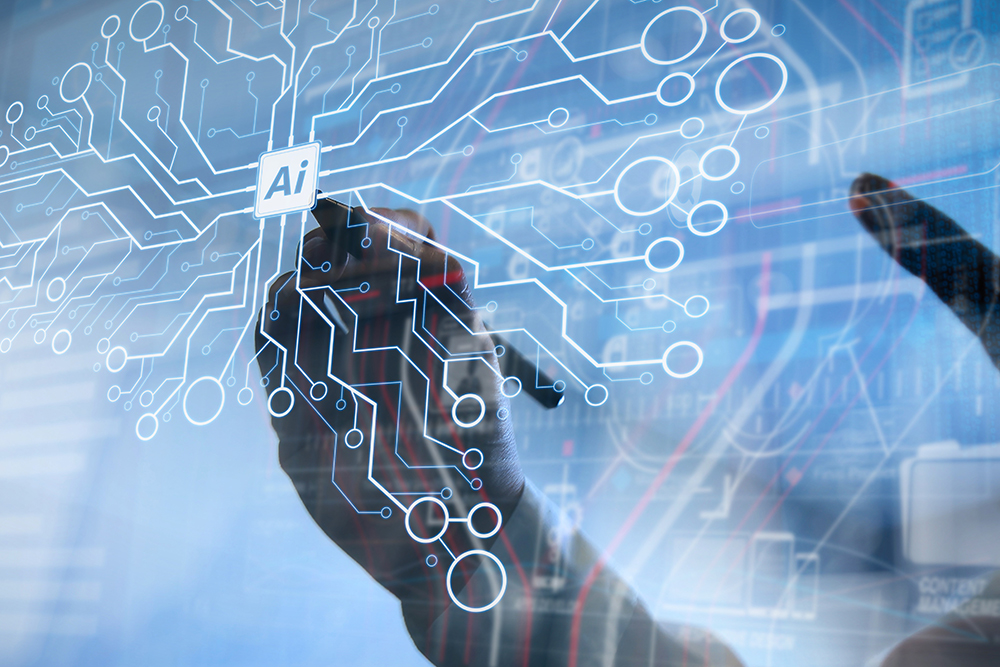How AI Is Accelerating Business Decision-Making
Business digital transformation has taken a major leap in recent years, and one of the key drivers of this evolution is Artificial Intelligence (AI). While strategic decisions used to rely solely on human analysis, AI now acts as a powerful ally, delivering speed, accuracy, and predictive capabilities to managers, teams, and leaders.
The Power of AI in Data Analysis
Every day, businesses generate enormous amounts of data, sales, customer behavior, campaign results, social interactions, operational information, and more. AI steps in precisely at this point: organizing, cross-referencing, and analyzing this information in real time.
With AI-based tools, it’s possible to:
Identify patterns that humans would take days—or might never—detect;
Cross-analyze data from multiple sources for deeper insights;
Visualize trends and generate dynamic reports far beyond traditional spreadsheets.

These systems not only show “what happened,” but also suggest possible causes and action paths based on historical and behavioral patterns.
Market Forecasting with Smart Algorithms
Another practical application of AI lies in forecasting future scenarios, also known as predictive analytics. Using techniques like machine learning and statistical modeling, AI can anticipate:
Demand fluctuations
Consumer behavior trends
Potential operational failures
Market and competitor movements
For instance, retail companies already use AI to predict sales volumes by region on specific dates, optimizing their inventory. In the financial sector, algorithms identify credit risks based on hundreds of variables that go far beyond a traditional score.
Automating Processes and Operational Decisions

AI is also being used to automate routine decisions, freeing up team time for more strategic tasks. Examples include:
Dynamic pricing: algorithms that adjust product prices in real time based on competition, demand, and sales history
Logistics management: smart delivery routing and delay forecasting
Automated customer service: AI chatbots that solve simple issues or route complex ones with full context
Smart recruiting: automated résumé screening based on ideal profiles
By eliminating bottlenecks and repetitive decisions, AI enables managers to focus on major decisions with more data and context supporting every step.
AI Doesn’t Replace Managers, It Enhances Human Decisions
Despite all these possibilities, it’s important to emphasize: AI does not replace human judgment. It amplifies leadership potential, offering tools for more informed, agile, and strategic decisions.
Human intelligence is still irreplaceable when it comes to interpreting context, aligning decisions with company values, considering ethical aspects, and adapting strategies to local realities. In practice, the best results come from the partnership between AI and humans, where each contributes its unique strengths: machine analytical power + human intuition, creativity, and judgment.
Companies that already embrace Artificial Intelligence as a decision-making ally are gaining advantages in agility, assertiveness, and competitiveness. And the good news is: this technology is increasingly accessible even for small and medium-sized businesses.
If your company still relies solely on intuition or fragmented data for decision-making, maybe it’s time to view AI not as a distant trend, but as a practical, strategic tool for today.
Enjoyed this content?
Then be sure to check your inbox for more tips from Mark Publicidade!
See you soon! 😊

Giovanna Marques
Graduated in Literature. She has experience in translation, text editing, and content creation. Currently, she is a copywriter at Mark Publicidade and strives for clear and didactic communication in her texts. She values versatility and creativity.
